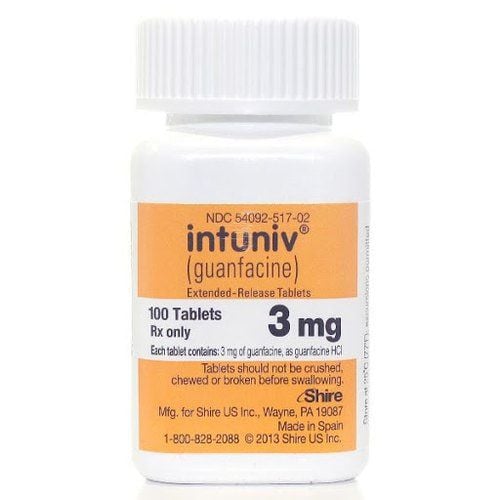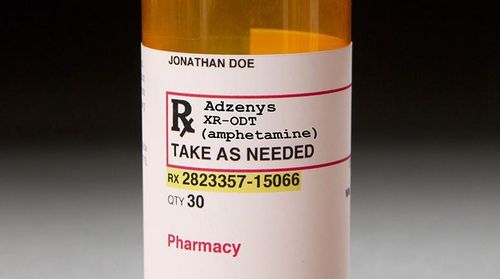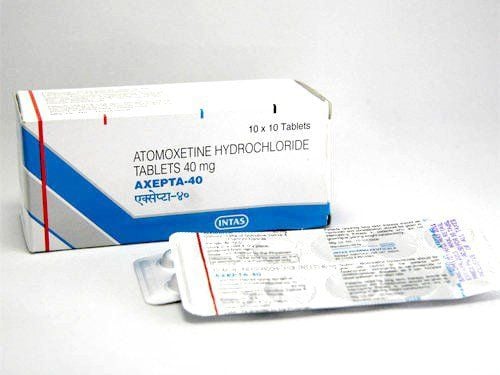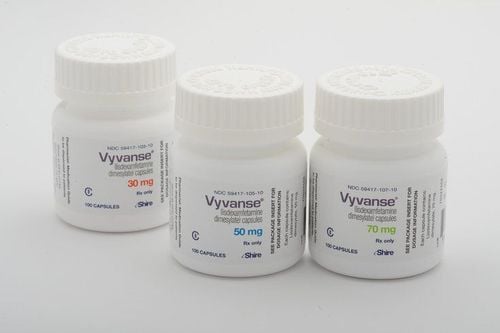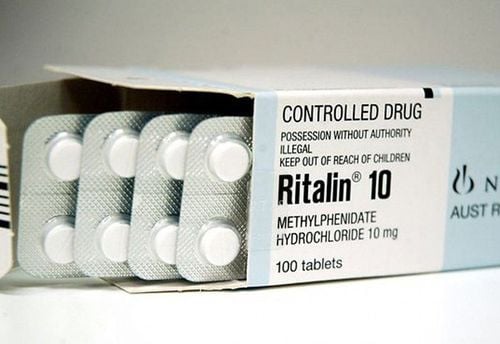This is an automatically translated article.
If you have attention deficit hyperactivity disorder, also known as adult ADHD, medication can be of great help in treating it. Medicines can give patients more focus and a sense of control. However, what should patients be aware of about the side effects of ADHD medications?1. Side effects of ADHD medication
Most people with ADHD are treated with stimulants for ADHD, but some cases of adult ADHD are treated with non-stimulant medications. However, any drug has similar side effects, specifically:Dizziness ; Dry mouth ; Headache ; Loss of appetite; Rapid mood swings; Tic disorders (twitches); Difficulty sleeping . MORE: How do celebrities deal with attention deficit hyperactivity disorder (ADHD)?

Một số người có thể bị đau đầu khi sử dụng thuốc điều trị ADHD lúc đói hoặc đang mất nước
2. Measures to reduce the side effects of ADHD medication
There are simple things that people can easily do to ease the side effects of ADHD medication:Dizziness: Sometimes, dizziness can be a sign that the person is taking too much medication to treat it. treating ADHD. Tell your doctor to have your medication dose checked and blood pressure monitored. Dry mouth: Drink plenty of water and use lozenges to keep your mouth moist. Headaches: Adults with ADHD may experience headaches after taking the medication on an empty stomach or when the person is dehydrated. Sometimes this symptom continues even after the medication wears off. The doctor can help the patient by tailoring the medication to the individual patient. Loss of appetite: Some medications can make you not want to eat much, but you should not skip meals, as this can lead to low blood sugar and make it harder for you to concentrate. Instead, eat several small meals throughout the day, instead of 3 larger meals. It is possible to have dinner later, after the effects of the drug have worn off, when the patient may feel hungry. Sometimes the loss of appetite gets worse leading to weight loss, which is rare, but tell your doctor if you're losing too much weight. Mood swings: Some people find that their ADHD medication makes them more stressed and irritable. Don't worry though, as with most ADHD medication side effects, this mood swings may go away with time. If depression is affecting you a lot, then ask your doctor about adjusting your dosage or changing your ADHD medication. Nausea: Take your ADHD medication with food to reduce the odds of feeling nauseous. If you have to take your ADHD medication in the morning and you're not a breakfast person, then you should still find something edible to take with your medication. Tic disorders: Abnormal muscle movements or repetitive sounds that the patient makes out of control. ADHD medications don't usually cause feelings of stress, but sometimes they can trigger underlying pain - which can resemble the angina the patient had in childhood. again. Usually, these marks will fade over time, but talk to your doctor if they don't go away. In addition, some ADHD medications can make it easier to wake up and make it harder to fall asleep. The trick to improving the side effects of this ADHD medication is to take it earlier in the day, as the medications usually wear off before bedtime. If you are using a long-acting stimulant, you can ask your doctor about trying a shorter-acting type. Limit or avoid the use of caffeine-containing products when treating ADHD. Turn off the patient's TV, computer, and phone about an hour before bedtime and take time to relax.
MORE: How does attention deficit hyperactivity disorder (ADHD) affect teenagers?

Bạn nên hạn chế sử dụng các sản phẩm chứa caffein khi đang điều trị ADHD để giảm thiểu tác dụng phụ của thuốc
3. Notes when using ADHD medication
There is no way to know how well a medication for ADHD will work for each different patient. Some adult ADHD responds better to one drug than another, so it may take several treatment trials to find the right medication for each patient.If the patient has high blood pressure, heart problems or a history of mental health problems or is addicted, then it is important to report all current problems to the doctor, as these This condition can cause problems with the patient's ADHD treatment.
Doctors will sometimes prescribe medications for adults with ADHD that are not FDA approved to treat ADHD. This is called "off-label" use, because these drugs will have different side effects and benefits and risks, which patients should find out the specifics with their doctor. his treatment.
Many people feel the side effects of the ADHD medication they are experiencing is tolerable in order to get the benefits of the medication. But if the side effects of ADHD medication become severe or interfere too much with the person's life, then don't try to ignore them, but seek help from your treating doctor. Discuss and consider together to come up with an ADHD treatment plan that is best for the patient.
Please dial HOTLINE for more information or register for an appointment HERE. Download MyVinmec app to make appointments faster and to manage your bookings easily.
Reference source: webmd.com



